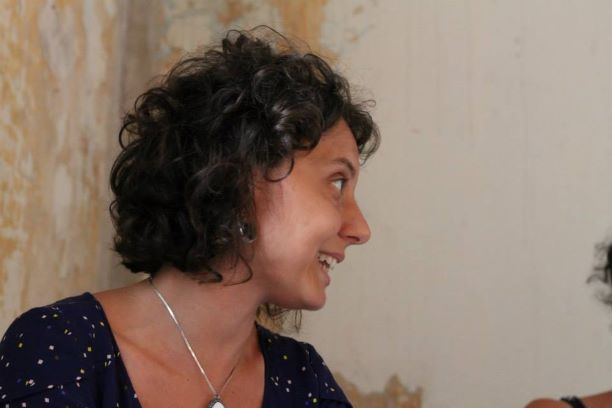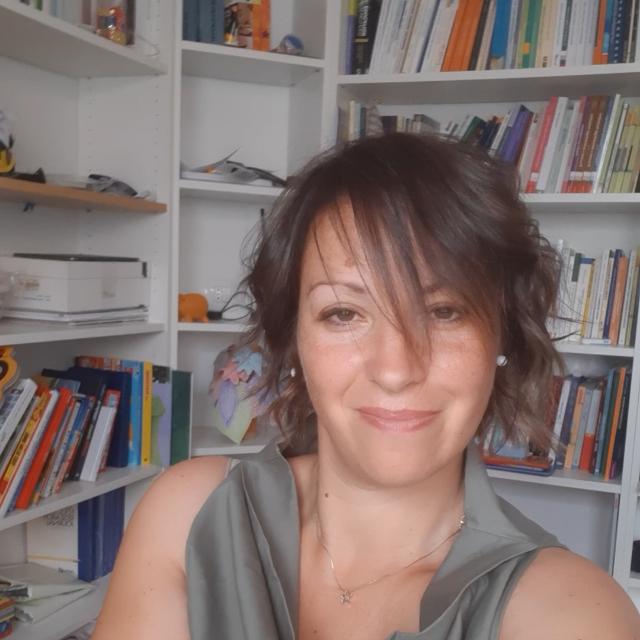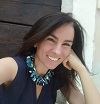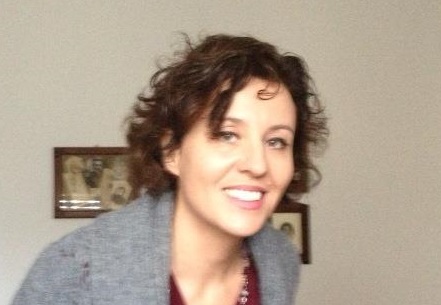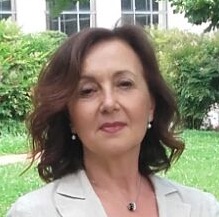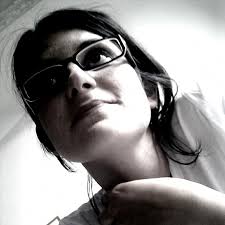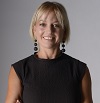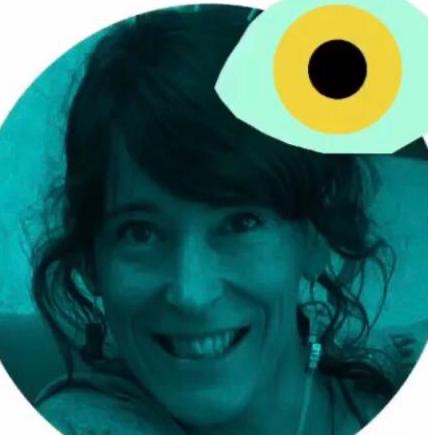Studying at the University of Verona
Here you can find information on the organisational aspects of the Programme, lecture timetables, learning activities and useful contact details for your time at the University, from enrolment to graduation.
Academic calendar
The academic calendar shows the deadlines and scheduled events that are relevant to students, teaching and technical-administrative staff of the University. Public holidays and University closures are also indicated. The academic year normally begins on 1 October each year and ends on 30 September of the following year.
Course calendar
The Academic Calendar sets out the degree programme lecture and exam timetables, as well as the relevant university closure dates..
| Period | From | To |
|---|---|---|
| Sem. 1A | Sep 23, 2019 | Oct 31, 2019 |
| Sem. 1B | Nov 11, 2019 | Jan 11, 2020 |
| Sem. 2A | Feb 17, 2020 | Mar 28, 2020 |
| Sem. 2B | Apr 6, 2020 | May 30, 2020 |
| Session | From | To |
|---|---|---|
| Sessione d'esame invernale | Jan 13, 2020 | Feb 15, 2020 |
| Sessione d'esame estiva | Jun 3, 2020 | Jul 25, 2020 |
| Sessione d'esame autunnale | Aug 24, 2020 | Sep 19, 2020 |
| Session | From | To |
|---|---|---|
| Sessione di laurea estiva | Jul 6, 2020 | Jul 11, 2020 |
| Sessione di laurea autunnale | Nov 2, 2020 | Nov 6, 2020 |
| Sessione di laurea invernale | Apr 7, 2021 | Apr 13, 2021 |
| Period | From | To |
|---|---|---|
| Festa di Ognissanti | Nov 1, 2019 | Nov 1, 2019 |
| Chiusura Ateneo | Nov 2, 2019 | Nov 2, 2019 |
| Festa dell'Immacolata | Dec 8, 2019 | Dec 8, 2019 |
| Vacanze di Natale | Dec 23, 2019 | Jan 6, 2020 |
| Vacanze di Pasqua | Apr 10, 2020 | Apr 14, 2020 |
| Festa della liberazione | Apr 25, 2020 | Apr 25, 2020 |
| Festa del lavoro | May 1, 2020 | May 1, 2020 |
| Sospensione delle lezioni | May 2, 2020 | May 2, 2020 |
| Festa del Santo Patrono | May 21, 2020 | May 21, 2020 |
| Sospensione delle lezioni | May 22, 2020 | May 23, 2020 |
| Festa della Repubblica | Jun 2, 2020 | Jun 2, 2020 |
| Vacanze estive | Aug 10, 2020 | Aug 15, 2020 |
Exam calendar
Exam dates and rounds are managed by the relevant Humanistic Studies Teaching and Student Services Unit.
To view all the exam sessions available, please use the Exam dashboard on ESSE3.
If you forgot your login details or have problems logging in, please contact the relevant IT HelpDesk, or check the login details recovery web page.
Should you have any doubts or questions, please check the Enrollment FAQs
Academic staff
 marialivia.alga@univr.it
marialivia.alga@univr.it
 erika.branchini@univr.it; erika.branchini@gmail.com
erika.branchini@univr.it; erika.branchini@gmail.com
 simona.carta@univr.it
simona.carta@univr.it
 marialuisa.costantino@univr.it
marialuisa.costantino@univr.it
 donato.desilvestri@univr.it
donato.desilvestri@univr.it
 laura.fontecedro@univr.it
laura.fontecedro@univr.it
Ganzerla Luca Giovanni Michelangelo
 lucagiovanni.ganzerla@univr.it
lucagiovanni.ganzerla@univr.it
 licia.landi@univr.it
licia.landi@univr.it

Migliorati Lorenzo
 lorenzo.migliorati@univr.it
lorenzo.migliorati@univr.it
 045802 8135
045802 8135
 maria.mori@univr.it
maria.mori@univr.it
 luca.odini@univr.it
luca.odini@univr.it
 alessandro.ongaro@univr.it
alessandro.ongaro@univr.it
 pieralberto.porcedducilione@univr.it; pierre_pordd@yahoo.it
pieralberto.porcedducilione@univr.it; pierre_pordd@yahoo.it
 045 8028732
045 8028732
 sara.riggio@gmail.com
sara.riggio@gmail.com
 mirela.tingire@univr.it
mirela.tingire@univr.it
 rosanna.vit@univr.it
rosanna.vit@univr.it
 barbara.zoccatelli@unitn.it
barbara.zoccatelli@unitn.it
Study Plan
The Study Plan includes all modules, teaching and learning activities that each student will need to undertake during their time at the University.
Please select your Study Plan based on your enrollment year.
1° Year
| Modules | Credits | TAF | SSD |
|---|
2° Year activated in the A.Y. 2020/2021
| Modules | Credits | TAF | SSD |
|---|
3° Year activated in the A.Y. 2021/2022
| Modules | Credits | TAF | SSD |
|---|
1 module to be chosen between the following| Modules | Credits | TAF | SSD |
|---|
| Modules | Credits | TAF | SSD |
|---|
| Modules | Credits | TAF | SSD |
|---|
1 module to be chosen between the following| Modules | Credits | TAF | SSD |
|---|
Legend | Type of training activity (TTA)
TAF (Type of Educational Activity) All courses and activities are classified into different types of educational activities, indicated by a letter.
Education in the ages of life - PEDAGOGIA DEL CICLO DI VITA (2020/2021)
Teaching code
4S008154
Teacher
Credits
2
Language
Italian
Scientific Disciplinary Sector (SSD)
M-PED/01 - PEDAGOGY, THEORIES OF EDUCATION AND SOCIAL EDUCATION
Period
Sem. 2B dal Apr 14, 2021 al May 29, 2021.
To show the organization of the course that includes this module, follow this link: Course organization
Learning outcomes
Knowledge and understanding
1. To know and understand that the life of each individual is both radically unitary in its identity and value, while it is complex and changeable in its forms and manifestations The same is true for education, whose foundations are constant, while the way of being realized in the different phases of existence and its contexts.
2. Understand that in every age of life the subject faces the same basic problems, even if they do so in different ways and at different levels of depth. From an educational point of view it is necessary to know these issues in depth to understand how to help them face them in the most appropriate way at any age.
3. Since every age of life has its own way of dealing with problems, from the educational point of view this allows us to understand that every age has its specific formative objectives, even if the great educational goals are always the same.
Ability to apply knowledge and understanding
1. As in every age of his life the individual has tasks to carry out and problems to overcome in order to fully realize himself, in the same way the educational objective of the educational activity with adults is to contribute to placing the adult person in the conditions of carrying out their duties and responsibilities.
2. Understand more deeply, through reference to all the ages of life, the specific meaning of elderly life, as the most favorable age to elaborate an overall vision of the meaning of one's life and, with them, the importance of educational work with Older people.
3. Use the knowledge learned from pedagogical research and from literary works, to deepen the reciprocal link between all ages of life.
Program
Programmatic content
The contents of the Life Cycle Pedagogy are roughly divided into two parts, which revolve around two questions, respectively: a) why consider the entire life cycle, if the teaching concerns adulthood; b) because in every individual the old age should be decisive, from the point of view of the search for the meaning of one's life.
Part A)
1) Philosophical approach: the diversity of every age of life and the profound unity of the person.
2) Psychological approach: life cycle and stages of development.
3) Pedagogical approach: the presence of education throughout the life span:
Part B)
1) Every age of life has a big problem to face and with it a task and a responsibility. What is the problem and the task of the elderly?
2) Old age and the completion of the life cycle: the risk of an "unfinished" life if deprived of old age?
3) Loneliness: characteristic of old life or of human life in its entirety?
Organization of didactic activity
Also in the didactic organization of this new teaching will be present the modality of the frontal lesson. However, the element of "reflective" sharing will prevail, typical of a "participatory lesson" in which the teacher and students are simultaneously committed to identifying the elements of continuity and difference between the ages of life, with the aim of seeking the " specific ”existential age of every age of life, in particular of adulthood and old age, two ages that in this historical and social moment require particular attention also from the point of view of educational work.
| Author | Title | Publishing house | Year | ISBN | Notes |
|---|---|---|---|---|---|
| D. De Leo, M. Trabucchi (a cura di) | Nemica solitudine. Analisi e proposte per contrastare la solitudine dell'anziano | Il Poligrafo, Padova | 2019 | 9788893870795 | |
| D. LORO | Riconoscere il significato della propria vita. Il compito e la responsabilità dell’età anziana | 2021 | Dispensa |
Examination Methods
Texts for the exam
To prepare the part of the exam relating to the Life Cycle Pedagogy module, it is necessary to study the two texts indicated below. These texts are mandatory for all students, attending and non-attending.
• D. Loro, Recognize the meaning of one's life. The task and responsibility of the elderly. The handout will be available towards the end of the lessons, at the Ateneo Stationery, Lungadige Porta Vittoria, 37 (email: ateneo@ateneovr.it).
• D. De Leo, M. Trabucchi (edited by), Enemy solitude. Analysis and proposals to combat the loneliness of the elderly, Padua, ed. The Polygraph, 2019.
Texts suggested for those who want to deepen their knowledge of elderly life in particular:
- M. Benetton, A pedagogy for the course of life. Reflections on educational planning in lifelong education, Padua, ed. Cleup, 2008.
- E. Bianchi, Life and days. On old age, Bologna, ed. il Mulino, 2018.
- C. Castelli, F. Sbattella (edited by), Psychology of the life cycle, Milan, ed. FrancoAngeli, 20082 (2004).
- E. Luppi, Pedagogy and the third age, Rome, ed. Carocci, 2008 (reprint 2014).
- V. Mariani, M. Musaio (edited by), Pedagogy, relationship of help and the elderly, Personalized accompaniment in residences, Rome, ed. Studium, 2019.
- S. Tramma, Pedagogy of aging. Living (well) the late age, Milan, ed. FrancoAngeli, 2017.
Method of examination
(except for any changes caused by the health emergency, which will be communicated in time)
• The exams concerning the Adult Education and Life Cycle Pedagogy modules will be held together, on the same dates and in the same manner, ie in the form of the written test, lasting a maximum of 2 hours and 30 minutes. The written test will consist of a total of 5 open questions: four questions will concern the contents of the first module; 1 question will concern the second module.
• The questions will be differentiated from each other not only for their content, but also for the logical / expository aspect. In fact, they could be "descriptive", "conceptual", "argumentative", "applicative" and "critical" questions. Towards the end of the lessons, further explanations and operational indications will be given regarding the conduct of the exam.
Methods of evaluating the exam and composing the final score
• The evaluation of the examination tests, relating to the three modules that make up the teaching of Education in the ages of life, will take place in the same way, that is, by articulating the score on the basis of four levels of judgment: Sufficient - Fair - Good - Excellent.
• The score out of thirty will be distributed in proportion to the number of credits attributed to each module, as follows:
─ Adult education (6 credits): max. 21 points out of 30 (Suff. 18; Fair 19; Good 20; Excellent 21).
─ Pedagogy of the life cycle (2 credits): max. 6 points out of 30 (Suff. 3; Fair. 4; Good 5; Excellent 6).
─ Life cycle pedagogy workshop: (1 cfu): max. 3 points out of 30 (Suff. 0.5; Fair 1; Good 2; Excellent 3).
• The final exam score will arise from the sum of the scores acquired in the three modules that make up the course.
NEED FOR THE CONNECTION BETWEEN THE EXAM PROGRAM AND THE ACADEMIC YEAR IN WHICH THE TEST IS TAKEN
To ensure the connection, as required by the "diploma supplement" document, between the exam program and the academic year in which the student takes the exam, and since each year the course program it is in-depth and updated in its contents, compared to the programs of previous years, it is culturally and didactically appropriate that students enrolled in previous academic years take the exam bringing the program of the current academic year, except for serious and justified reasons, to be communicated in any case and in advance to the teacher.
Type D and Type F activities
Modules not yet included
Career prospects
Module/Programme news
News for students
There you will find information, resources and services useful during your time at the University (Student’s exam record, your study plan on ESSE3, Distance Learning courses, university email account, office forms, administrative procedures, etc.). You can log into MyUnivr with your GIA login details: only in this way will you be able to receive notification of all the notices from your teachers and your secretariat via email and soon also via the Univr app.
Graduation
Documents
| Title | Info File |
|---|---|
|
|
pdf, it, 99 KB, 13/10/23 |
|
|
pdf, it, 101 KB, 10/04/24 |
List of theses and work experience proposals
| theses proposals | Research area |
|---|---|
| Ambienti e contesti di lavoro con minori | Various topics |
| Analisi dei personal network di sostegno | Various topics |
| comunicazioni relative alla tesi | Various topics |
| Il teatro come contesto educativo | Various topics |
| I processi di globalizzazione culturale nella società contemporanea | Various topics |
| La social network analysis applicata allo studio dei contesti educativi | Various topics |
| L'educatore ed i progetti europei | Various topics |
| L'impegno associativo in ambito educativo | Various topics |
| Politiche sociali e contesti educativi | Various topics |
| Progetti di collaborazione con le istituzioni scolastiche | Various topics |
| PROPOSTE TESI AMBITO GEOGRAFICO | Various topics |
| Scuola e capitale sociale | Various topics |
Linguistic training CLA
Gestione carriere
Student mentoring
Practical information for students
Documents
| Title | Info File |
|---|---|
|
|
pdf, it, 325 KB, 02/05/23 |
|
|
pdf, it, 212 KB, 02/05/23 |
|
|
pdf, it, 131 KB, 02/05/23 |
Stage e Tirocini
Le ulteriori attività formative (crediti F) sono interamente coperte dall’attività di tirocinio “indiretto” (1 cfu) da svolgersi nel secondo anno e di tirocinio “diretto” (14 cfu) da svolgersi presso enti convenzionati per un numero complessivo di 15 cfu (375 ore). Chi è iscritta/o al curriculum servizi per l’infanzia è tenuta/o a svolgere il tirocinio presso nidi e servizi per la prima infanzia per almeno il 50% delle ore.
Il tirocinio professionalizzante (375 ore, pari a 15 cfu), è obbligatorio sia nella sua forma diretta che indiretta.
Il tirocinio indiretto, della durata di 25 ore a frequenza obbligatoria al 75%, si svolge in Università per 20 ore e in forma di lavoro individuale per 5 ore e consiste in un accompagnamento iniziale delle/degli studenti da parte dei tutor attraverso un percorso formativo dotandoli di conoscenze e strumenti adeguati a osservare, comprendere e rielaborare criticamente l’esperienza di tirocinio nei servizi educativi e ad affrontare il tirocinio negli enti con metodo e consapevolezza. Il percorso, da attuare in gruppi da 20-25 persone sotto la supervisione di un tutor, risponde alle esigenze costantemente espresse sia dalle/dagli studenti stessi sia dalle parti sociali che dai referenti degli enti convenzionati.
Il tirocinio diretto si propone di raggiungere i seguenti obiettivi:
- fare esperienza diretta di attività professionali, che richiedono un livello di preparazione al lavoro educativo;
- approfondire in particolare il rapporto tra preparazione teorica, acquisita mediante lo studio, ed esperienza pratica, tra mondo del sapere e della cultura e mondo del lavoro e delle professioni;
Al termine del tirocinio diretto lo studente deve presentare una relazione scritta, nella modalità concordata con il tutor accademico.
Nuove Linee Guida per il tirocinio di Scienze dell'educazione.
- Tutte le informazioni in merito agli stage per futuri studenti sono disponibili alla pagina Stage e tirocini.
- Tutte le informazioni in merito agli stage per studenti iscritti sono pubblicate in MyUnivr - come fare per - stage e tirocini.
- Tutte le informazioni in merito agli stage per le aziende sono disponili alla pagina Stage e tirocini per azienze.
Documents
| Title | Info File |
|---|---|
|
|
pdf, it, 302 KB, 16/07/21 |
